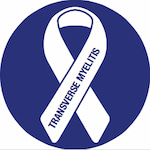TM Awareness Day UK Date in the current year: June 9, 2026
 TM Awareness Day is observed in the United Kingdom on and around June 9 each year. The day was established to raise awareness of transverse myelitis, a rare neurological condition that affects the spinal cord.
TM Awareness Day is observed in the United Kingdom on and around June 9 each year. The day was established to raise awareness of transverse myelitis, a rare neurological condition that affects the spinal cord.Transverse myelitis (TM) is a rare neurological condition characterized by inflammation of the spinal cord. This inflammation can damage myelin, a lipid-rich substance that surrounds nerves, and affect the transmission of nerve impulses. The adjective “transverse” means that myelitis (spinal cord inflammation) affects a horizontal segment throughout the cross section of the spinal cord.
TM is a rare disease with an annual incidence of 4.6 per 1 million people. It affects men and women equally and can occur at any age, though it most often occurs at two age peaks: 10–19 and 30–39.
The exact cause of TM is unclear; in 15 to 60% of cases, the condition is idiopathic, meaning it has no known cause. Other possible causes include autoimmune reactions (TM may co-occur with neuromyelitis optica), viral or bacterial infections (cytomegalovirus, herpes, HIV, Epstein-Barr virus, West Nile virus, Zika virus, mycoplasma infection, cat-scratch disease, and Lyme disease), demyelinating diseases, spinal cord injuries, schistosomiasis, vascular disorders, and paraneoplastic syndrome.
TM symptoms depend on the affected segment of the spinal cord. Common symptoms include paresthesia (a pins-and-needles sensation), numbness and weakness in the limbs, back pain at the level of the affected segment, heightened sensitivity to touch, and loss of bladder or bowel control when the inflamed segment is in the middle or lower part of the spine.
There is no cure for transverse myelitis. Treatment depends on the underlying cause and focuses on reducing inflammation and alleviating symptoms. Corticosteroids are typically prescribed to reduce inflammation and are often combined with pain relievers. If steroids are ineffective, plasmapheresis may be used as an alternative treatment. Patients may also require short- or long-term physical or occupational therapy.
The prognosis for transverse myelitis depends on the underlying cause and how early treatment begins. Approximately one-third of patients experience complete or near-complete recovery; one-third recover to some degree but are left with physical impairments; and one-third experience no recovery. Recovery typically begins between weeks two and 12 after symptom onset and may take up to two years. Complete recovery is unlikely if there is no improvement within 3 to 6 months of starting treatment.
TM Awareness Day UK has been celebrated every June 9 since 2011. It is supported by the TM Society, a small charity that assists individuals with transverse myelitis and related conditions, neuromyelitis optica (NMO) and acute disseminated encephalomyelitis (ADEM). The main goals of this observance are to raise awareness of transverse myelitis among the general public, educate health and social care professionals about the condition, and ensure that patients with TM and their families feel less isolated and receive the support they need.
- Category
- Other Observances
- Country
- United Kingdom
- Tags
- TM Awareness Day UK, observances in the UK, awareness day, transverse myelitis, rare disorders